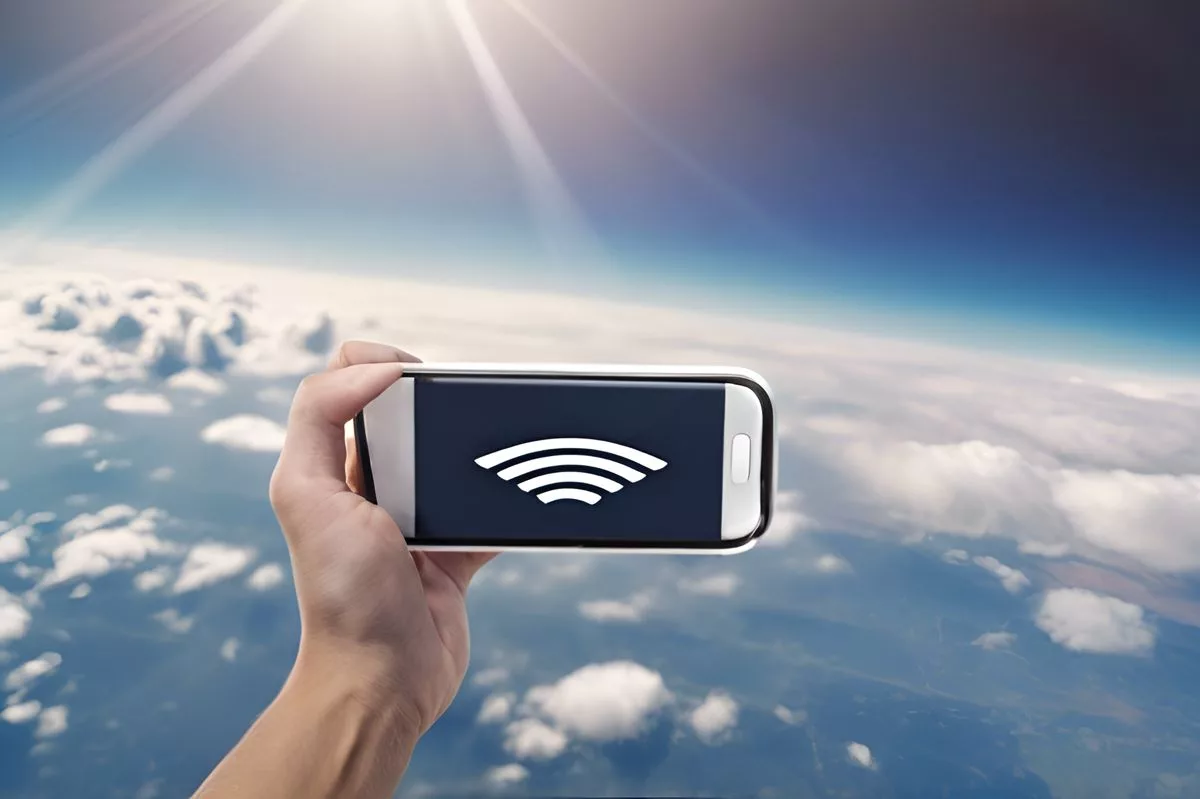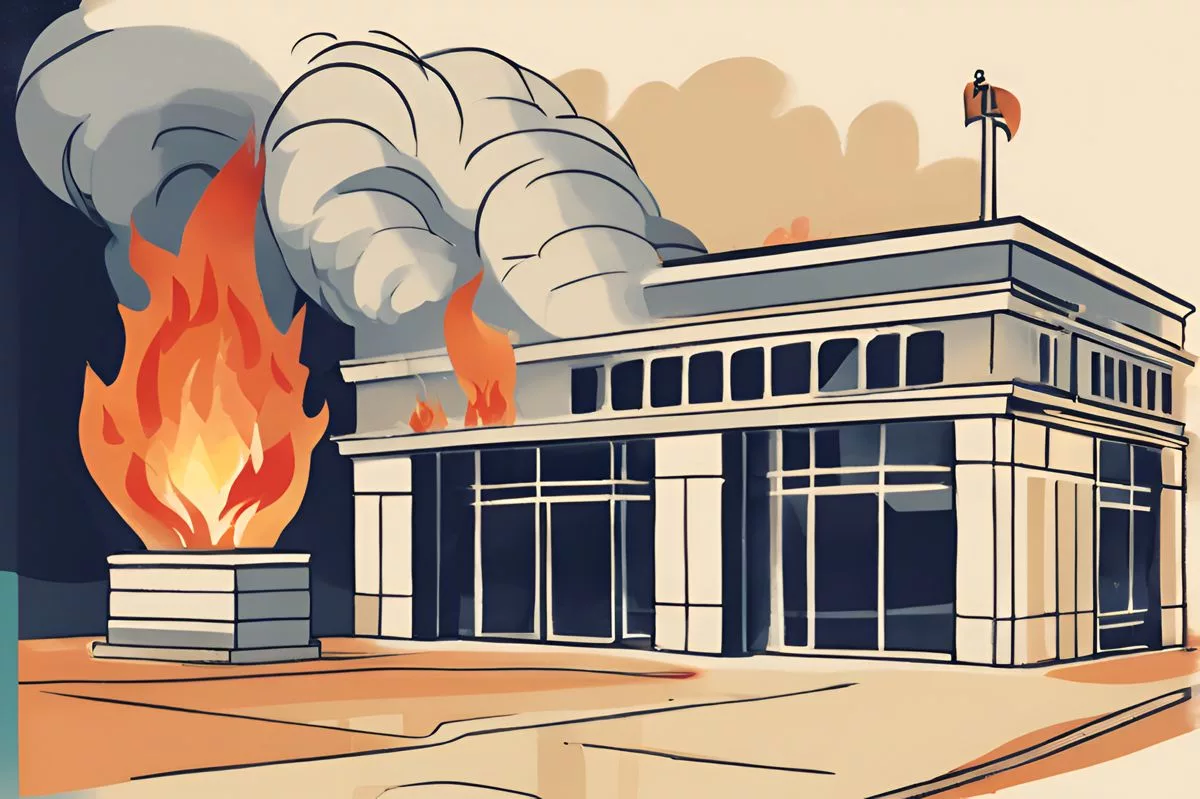Delta Air Lines is set to offer complimentary Wi-Fi on its long-haul flights, a significant shift from the high costs that have hindered its usage in the past. This move highlights the aviation industry’s understanding of changing customer expectations and a readiness to adjust accordingly. Turkish Airlines has also stated its plan to offer unrestricted free Wi-Fi on all its flights by the end of 2025, pointing to an emerging trend in the airline sector towards offering value-added services to passengers.
In-Flight Connectivity’s Bright Horizon: Complimentary Wi-Fi Up Above
The Current State of In-Flight Wi-Fi
In-flight Wi-Fi can be a luxury for both business and leisure travelers, but the high cost has hindered its usage. However, Delta Air Lines plans to provide complimentary Wi-Fi on its long-haul flights, setting a new benchmark for the industry. This shift towards free in-flight connectivity highlights the aviation industry’s understanding of changing customer expectations and a readiness to adjust accordingly.
The Current State of In-Flight Wi-Fi
When one thinks of the zenith of convenience for both business and leisure travelers, the concept of Wi-Fi connectivity during flight at 35,000 feet often springs to mind. The charm of web surfing, streaming media, and exchanging messages while traversing the big blue is indeed captivating. This luxury, despite being available for some time, has been met with defiance, mainly due to the exorbitant cost it entails.
Take British Airways for instance, where ordinary in-flight internet access can set you back by R520. Emirates charges around R370, while premium access on Virgin Atlantic can cost a staggering R710 for the entire flight. It’s not surprising, then, that many passengers are wary of paying such hefty amounts for the benefit of online connectivity.
The Changing Winds in In-Flight Connectivity
However, a shift is imminent that could potentially revolutionize the travel industry. Delta Air Lines, a heavyweight in the aviation world, is gearing up to offer complimentary in-flight internet access on its long-haul flights. Nearly 700 Delta aircraft already provide Wi-Fi of streaming quality for mostly local routes. The airline anticipates that by end of next year, the majority of its long-haul passengers will avail this service, a significant improvement from its current offerings.
Ranjan Goswami, the Senior Vice President of Customer Experience Design at Delta, has expressed his enthusiasm about this plan. He claims that the airline’s commitment to swift, free in-flight Wi-Fi, and the experiences it facilitates, sets a new benchmark for the industry. Goswami hails this as a remarkable success, labeling it an ‘unequalled’ achievement in the airline business.
The Deployment of Delta’s Free Wi-Fi and Future Prospects
The free Wi-Fi service offered by Delta will initially be launched on Viasat-equipped widebody aircraft, rolling it out gradually on a route-by-route basis as per the aircraft availability. The plan is to extend this service to flights heading to South America by October 2024, followed by West Africa in January 2025.
However, passengers from South Africa and those heading to Asia, Australia, and New Zealand may need to exercise a little more patience. They can anticipate this high-speed internet service by the middle of 2025. Although this might sound like a distant future, the advantages of accessing free and reliable Wi-Fi during extended flights will likely make up for the prolonged wait.
Industry-wide Embrace of Free Wi-Fi
This shift by Delta doesn’t exist in a vacuum. Turkish Airlines has also stated its plan to offer unrestricted free Wi-Fi on all its flights by the end of 2025. This not only indicates a substantial change in the in-flight experience but also points to an emerging trend in the airline sector.
These shifts embody a significant transformation within the aviation industry, signifying the understanding of changing customer expectations and a readiness to adjust accordingly. With the initiatives taken by Delta and Turkish Airlines, it’s evident that the aviation industry is starting to understand the importance of offering value-added services to its passengers, even at an altitude of 35,000 feet.
While it may take some time for these changes to ripple across the world, the future of in-flight connectivity seems to be evolving towards a more accommodating and customer-focused model. And for a multitude of travelers, the idea of free Wi-Fi soaring high in the sky is certainly a thrill to look forward to.
1. What is the current state of in-flight Wi-Fi?
In-flight Wi-Fi has been available for some time but has been met with reluctance due to its high cost, with airlines like British Airways charging up to R520 for ordinary in-flight internet access.
2. What is Delta Air Lines’ plan to change the current state of in-flight Wi-Fi?
Delta Air Lines plans to offer complimentary Wi-Fi on its long-haul flights, setting a new benchmark for the industry and highlighting the aviation industry’s understanding of changing customer expectations.
3. When will Delta Air Lines deploy its free Wi-Fi service?
The free Wi-Fi service will first be launched on Viasat-equipped widebody aircraft and will be gradually rolled out on a route-by-route basis starting next year, with plans to extend the service to flights heading to South America by October 2024 and to West Africa in January 2025. Passengers from South Africa and those heading to Asia, Australia, and New Zealand can anticipate this high-speed internet service by the middle of 2025.
4. What is the significance of Delta Air Lines’ plan for the aviation industry?
Delta Air Lines’ plan signifies the aviation industry’s understanding of changing customer expectations and a readiness to adjust accordingly, highlighting the importance of offering value-added services to passengers even at an altitude of 35,000 feet.
5. What is Turkish Airlines’ plan regarding in-flight Wi-Fi?
Turkish Airlines has also stated its plan to offer unrestricted free Wi-Fi on all its flights by the end of 2025, indicating a substantial change in the in-flight experience and pointing to an emerging trend in the airline sector.
6. What is the future of in-flight connectivity?
The future of in-flight connectivity seems to be evolving towards a more accommodating and customer-focused model, with the initiatives taken by Delta and Turkish Airlines leading the way. While it may take some time for these changes to ripple across the world, the idea of free Wi-Fi soaring high in the sky is certainly a thrill to look forward to for a multitude of travelers.








